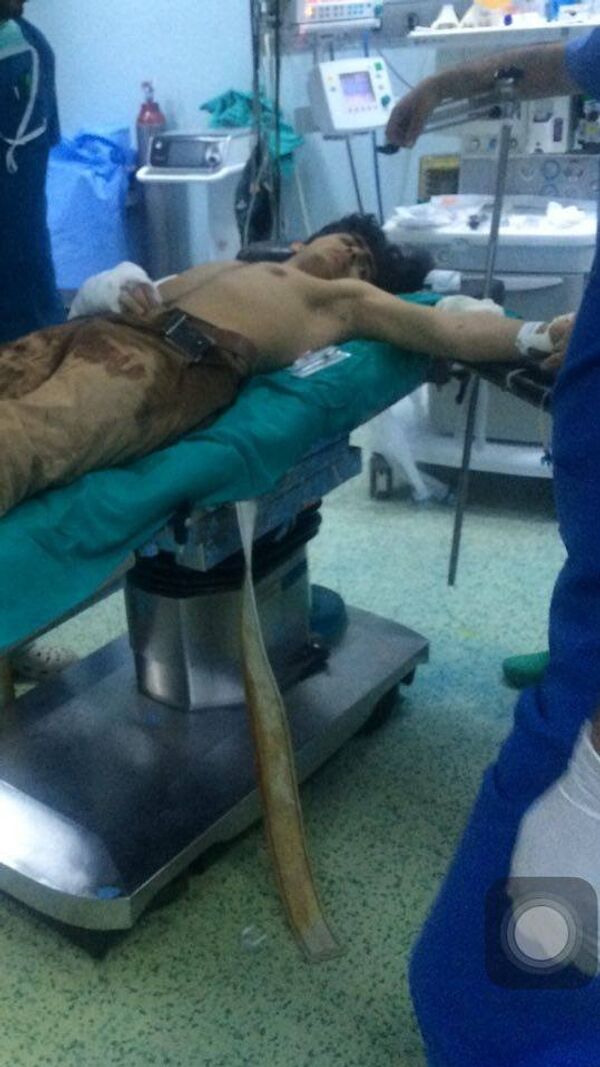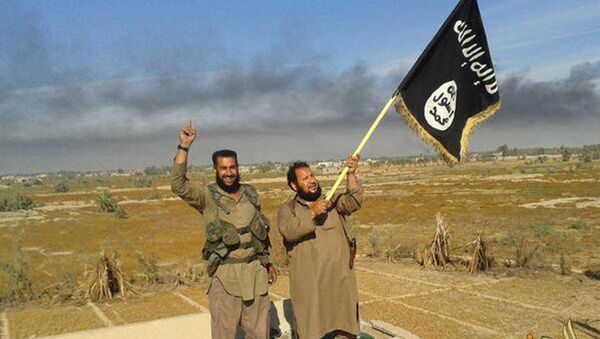In the third part of the report, Lizzie and her colleague Gokhan met with doctors who treated Daesh militants in hospitals in the south of the country from where militants from Syria are coming.
Earlier in May, an unnamed source told Sputnik that four wounded Daesh fighters were treated at the Ersin Arslan regional hospital, located in the Turkish city of Gaziantep. They were admitted on May 5, the medical worker, who spoke on condition of anonymity, added.
One of them, named Bagur Ferhad, was an Afghan national born in 1993, the source said.

"I examined the Daesh fighters. They had gunshot wounds. None of them received life-threatening injuries," the medical worker detailed.
Earlier, Turkish forces opened fire when a group of foreign fighters tried to cross into Syria near Oğuzeli, a city in the Gaziantep province. Three militants were killed, 11 were injured. Four of them were brought to the Ersin Arslan regional hospital. No record of their stay was made.
However, during Phelan’s recent visit to Gaziantep, a city in south-central Turkey some 60 kilometers from the Syrian border, eyewitnesses and doctors told the RT correspondent that most of the Daesh fighters were treated in the border city of Kilis, south of Gaziantep.
“Many wounded Daesh militants or FSA [Free Syrian Army] fighters were brought to the border in pick-up trucks, not ambulances,” Medical Association Chair in Gaziantep and Kilis Hamza Agca said. “Many were unconscious and bleeding when they were brought to us.”
Agca further said that the injured men were apparently driven right from a “war zone” and doctors on a number of occasions had to deal with things like “grenades falling out of their pockets.”
One doctor from Kilis also confirmed to RT that they received fighters from across the Turkish-Syrian border, including Daesh militants. The doctor said on condition of anonymity that he was just one of the many doctors who treated terrorists in Kilis.
He described discovering suicide vests on some of Daesh patients and felt horrified as he was forced to take them off.
When asked about how the doctors felt about treating terrorists, Agca said that as medical professionals they were under an oath to help the injured, no matter who they were. “Any doctor throughout the world would do the same,” he said.

However, after the treatment was over, the militants went back to rejoin the battlefield in Syria. “We treated these fighters and they went back to fight once they recovered, some were brought for a second or third time to our hospital,” Agca said.
Agca told RT that the Turkish government officials made sure that Daesh fighters were able to cross into Turkey with no obstacles.
“In terms of their medical treatment, the government didn’t give us any order but their policy was to provide the opportunity to fighters to use the border crossing.”
Turkish authorities deny any whatsoever connection with Daesh. For journalists working in the country, the investigation of this topic is quite risky. It is likely that after this story was aired, Phelan may not be able to go back to Turkey without having to worry for her safety.
According to the doctor, the flow of Daesh militants being admitted to Turkish hospitals has decreased, but they still see militants admitted every couple of weeks.
The first reports of Daesh militants receiving costly and complicated medical treatment appeared in May. The information was leaked via tapped phone calls and was handed to the media by opposition MP Erem Erdem.



